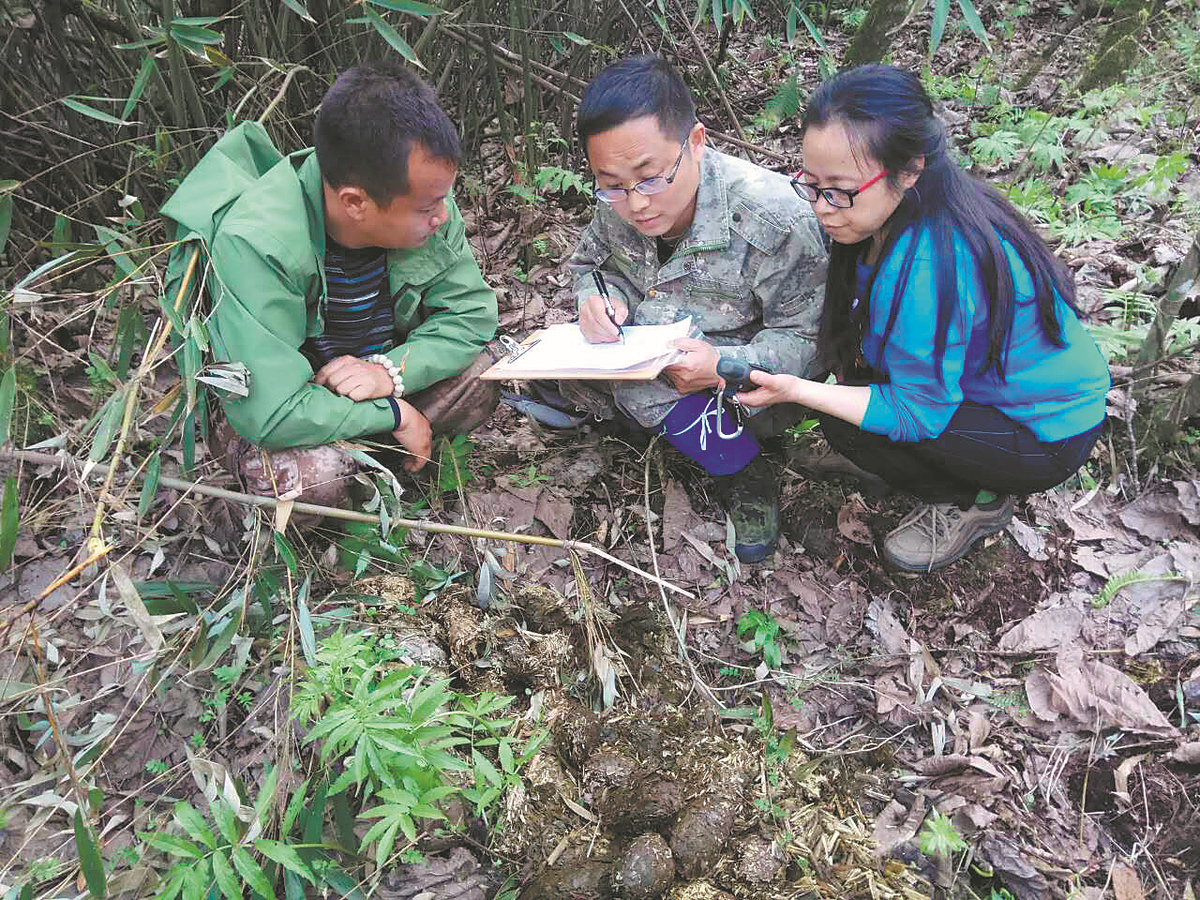Biodiversity improving in Sichuan
Dedicated ranger strides mountains to ensure rare species flourish once again


For Zhu Dahai, the most exhilarating moment in his job is discovering images of rare wild animals while checking the infrared cameras set up in the wilderness.
Zhu, 47, is head of the Longchi substation of the Dujiangyan management and protection station in the Giant Panda National Park in Sichuan province. He's dedicated himself to ecological conservation and biodiversity protection for 22 years.
"I am so proud to see the wildlife thriving on the land I have been protecting. It gives me a great sense of accomplishment," he said.
Driven by his curiosity for giant pandas and passion for rare plants, Zhu came to the Longxi-Hongkou National Nature Reserve, a major part of today's Dujiangyan section of the Giant Panda National Park, in 2001 to become a forest ranger after graduating from college.
Located about 80 kilometers to the northwest of the urban area of Chengdu, capital of Southwest China's Sichuan, the Dujiangyan section of the Giant Panda National Park covers a total area of 394 square km.
With the altitude ranging from 860 meters to 4,582 meters, the area is among the world's top global biodiversity hot spots, where a total of 1,068 animal species and 2,830 plant species have been recorded. It is also a key region and natural corridor for the survival and reproduction of giant pandas living in the Minshan and Qionglai mountain ranges.
Zhu said his main duties include wildlife monitoring, forest fire prevention, promoting ecological protection and assisting in ecological protection-related research.
Except for January to March, when heavy snow seals the mountain passes, Zhu and his colleagues take turns conducting patrols every day. There are eight daily patrol routes at the Longchi substation, with the longest and shortest routes taking at least 10 hours and around four hours respectively.
"During spring and autumn each year, there are special patrols that last for one to two weeks that require overnight stays in the wilderness," he said.
During his patrols in the wilderness, Zhu has encountered dangerous situations on several occasions such as blizzards, mudslides and wild animal attacks.
The most dangerous was in 2012 when he led a team of 10 people up the 4,582-meter-high Guangguang Mountain to explore the path for a scientific expedition team. They became trapped in the mountains by a sudden heavy snowfall and nearly lost their lives due to cold and hunger.
Despite the hardship and danger, Zhu believes his work is worthwhile, as it has resulted in the continuous improvement of the ecological environment.
"The most obvious change is the rapid increase in the number of wild animals. The golden snub-nosed monkeys and takins, for example, were once hard to see, but they are now frequently captured by infrared cameras, and we can even see them by ourselves during our patrols," he said.
Zhu said the number of wild giant pandas is also steadily increasing in the Dujiangyan section.
"The third National Giant Panda Census in 2001 showed there were only nine wild giant pandas in the section, while the fourth census issued in 2015 showed the number had increased to 14," he said, adding that infrared cameras in the section have recorded images of a mother panda with a cub about once every two years over the past decade.
Recently, Zhu has been preparing for this year's first patrol. His biggest hope is to find traces of the female giant pandas Qin Xin and Xiao He Tao, who were captive-born and released into the wild in late 2018.
"At the end of 2021, we found fresh feces from Xiao He Tao. Based on the fecal samples, she lives well and is in good health," Zhu said.
The two pandas were two-and-a-half years old when released, and if they've successfully found mates, they might have offspring by now, he added.
Zhu and his colleagues also organize forest lectures and panda classes to raise public awareness about ecological conservation and biodiversity protection.
"The average age of forest rangers at our substation is over 50. I hope more young people will become interested in our work and join us," he said.
Zhang Chunqi contributed to this story.
- Jilin winter fishing festival fetches record auction, visitors
- China pushes higher education reform with focus on tech and industry
- Emergency crews battle wildfire in Shenzhen
- China CDC urges precaution amid surge in rhinovirus cases
- Govt to streamline health insurance payments over next 3 years
- China urges global vigilance against revival of Japanese militarism





































